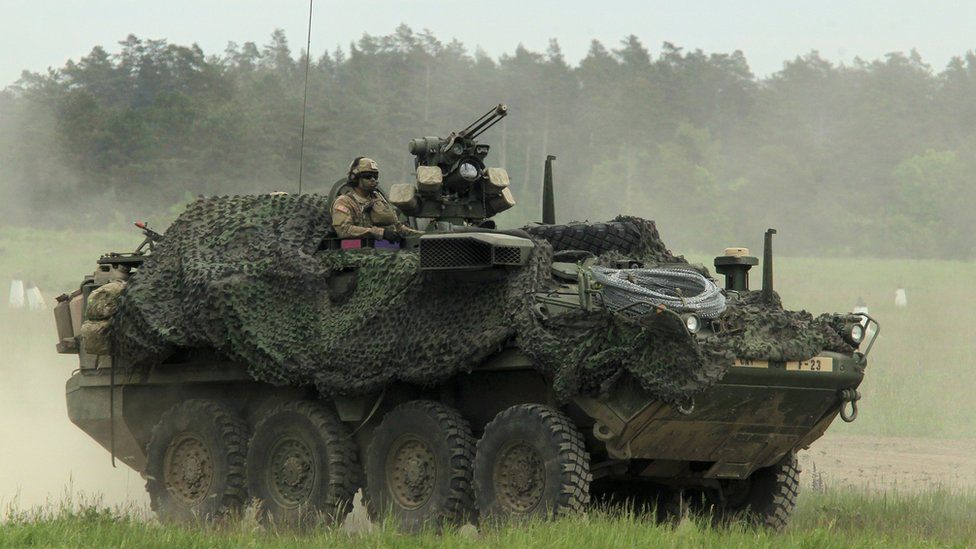Juncker: EU needs stronger defence arm
- Published

EU nations must step up their military co-operation as they cannot simply rely on the US to defend them, EU Commission President Jean-Claude Juncker says.
"Our deference to Nato can no longer be used as a convenient alibi to argue against greater European efforts.
"We have no other choice than to defend our own interests in the Middle East, in climate change, in our trade agreements," he said in Prague.
US President Donald Trump has urged Nato allies to boost defence spending.
Last month German Chancellor Angela Merkel said Europe could no longer "completely depend" on the US and UK, following the election of President Trump and the triggering of Brexit.
The UK and France are by far the strongest military powers in the EU, so UK withdrawal potentially weakens Europe's collective military muscle.
Only five of Nato's 29 member states - the UK, US, Poland, Greece and Estonia - have met Nato's target for each member to spend at least 2% of their GDP (national output) on defence.
Mr Juncker told the Prague defence and security conference on Friday that "the way forward starts with making sure that we spend what is needed on our defence".
Cold War-era tensions have resurfaced since Russia annexed Crimea in 2014 and pro-Russian rebels carved out a separatist region in eastern Ukraine.
Wasteful policies
"The protection of Europe can no longer be outsourced," Mr Juncker said.
But he stressed that "competition between the EU and Nato is not an option".
He praised the EU-Nato partnership in some key hotspots around the world: Afghanistan, the Balkans and the Horn of Africa.
But he deplored inefficiencies in European military spending and planning, saying much more co-operation on defence projects was needed in the EU.
Mr Juncker said the EU was spending on average €27,000 (£24,000; $30,000) per soldier on equipment and research, whereas the US was spending €108,000.
"Together, we spend half as much as the United States, but even then we only achieve 15% of their efficiency," he said.
"Absurdly, there are more helicopter types than there are governments to buy them! We must do better."
The UK has long been one of the strongest voices in the EU against any moves towards forming a European army. The UK says the EU must not duplicate Nato's role as the main pillar of European defence.
However, Mr Trump's criticisms of Nato have raised questions about the US commitment to defending Europe.
European Defence Fund
On Wednesday the European Commission announced the launch of a European Defence Fund, agreed with national governments, to help finance joint military projects.
The EU will earmark budget funds to co-finance projects that EU member states want to develop together.
Under the plan, €500m will be made available annually after 2020 for joint military research, and another €1bn annually for joint investment and purchases of military equipment, such as drones and helicopters.
The EU has formed some joint battlegroups, intended as a rapid reaction force, but they have never been tested in combat.
- Published28 May 2017
- Published25 May 2017
- Published18 March 2017